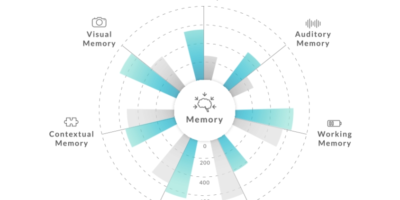
Actor Bruce Willis attends the premiere of Universal Pictures’ “Glass” at SVA Theatre on January 15, 2019 in New York City. (Photo by Angela Weiss / AFP) (Photo by ANGELA WEISS/AFP via Getty Images)
Introduction
The recent announcement of Bruce Willis’ diagnosis with Fronto Temporal Dementia (FTD) and Aphasia has generated a significant amount of attention towards these neurological conditions. As one of Hollywood’s most beloved actors, Willis’ battle with FTD and Aphasia has prompted many to seek information on these complex disorders. This article aims to provide a comprehensive understanding of FTD, its causes, symptoms, and treatment options, as well as discussing the impact of aphasia on patients.
Fronto Temporal Dementia: A Brief Overview
Fronto Temporal Dementia (FTD) is a group of uncommon neurological disorders that primarily affect the frontal and temporal lobes of the brain. These areas are responsible for various functions, including personality, behavior, and language. FTD usually appears between the ages of 40 and 65 but can also occur earlier or later in life. The condition is progressive, meaning that it worsens over time and ultimately leads to severe disability.
Causes and Risk Factors
The precise cause of FTD remains unclear, but it is believed to involve a combination of genetic, environmental, and lifestyle factors. In some cases, specific gene mutations have been identified in families with a history of the disorder, indicating a hereditary component. Other risk factors include head trauma, substance abuse, and a history of autoimmune diseases or infections.
Symptoms and Subtypes
FTD presents with a wide range of symptoms, which can be broadly categorized into three subtypes: behavioral variant FTD, semantic variant primary progressive aphasia, and nonfluent variant primary progressive aphasia.
- Behavioral variant FTD (bvFTD) – This subtype is characterized by significant changes in personality and behavior, including apathy, impulsivity, and social inappropriateness. Individuals with bvFTD may also experience difficulties in planning, organizing, and decision-making.
- Semantic variant primary progressive aphasia (svPPA) – This subtype affects language comprehension and word-finding, leading to a reduced vocabulary and an inability to understand or express complex ideas. Patients with svPPA may also struggle to recognize familiar objects or faces.
- Nonfluent variant primary progressive aphasia (nfvPPA) – This subtype is marked by difficulties with speech production, including stuttering, slow speech, and incorrect word usage. Comprehension, however, remains relatively intact.
Aphasia: An Added Challenge
Aphasia is a language disorder resulting from damage to the areas of the brain responsible for speech and language comprehension. While aphasia is not exclusive to FTD, it can significantly worsen the impact of the condition. In Bruce Willis’ case, aphasia has affected his ability to communicate effectively, causing him to retire from acting.
Diagnosis and Treatment
Diagnosing FTD can be challenging due to the variability of symptoms and its overlap with other neurological disorders. A combination of medical history, neurological examinations, cognitive tests, and brain imaging techniques is typically used to establish a diagnosis.
There is currently no cure for FTD, but various treatments can help manage the symptoms and improve the quality of life for those affected. Medications, such as antidepressants and antipsychotics, can help manage mood and behavior changes, while speech and language therapy can address communication challenges. Occupational and physical therapy can also assist with daily living skills and mobility.
Conclusion
Fronto Temporal Dementia is a complex and progressive neurological disorder that affects many aspects of a person’s life. The recent diagnosis of Bruce Willis has increased awareness of FTD and aphasia, emphasizing the importance of continued research and support for those living with these conditions. While there is currently no cure, a better understanding of FTD and its underlying causes can lead to improved treatment options and eventually, a potential cure.
In the meantime, it is essential for patients, their families, and caregivers to have access to appropriate resources and support networks. Organizations like the Association for Frontotemporal Degeneration (AFTD) and the National Aphasia Association (NAA) provide valuable information, guidance, and assistance for those affected by these conditions.
The journey of Bruce Willis and countless others living with FTD and aphasia serves as a powerful reminder of the need for ongoing research and advocacy in the field of neurodegenerative disorders. By raising awareness and fostering a better understanding of these conditions, we can hope for a future where effective treatments and support are readily available for those in need.




Leave a Reply